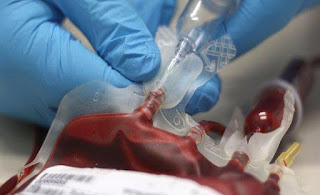Bringing Healthcare to Your Doorstep: The Mobile Health Vehicle Revolution
Introduction:
In today's fast-paced world, access to quality healthcare is of paramount importance. However, for many individuals living in remote areas or facing mobility challenges, accessing medical services can be a daunting task. Enter the Mobile Health Vehicle (MHV) revolution, a transformative concept that brings healthcare directly to the communities it serves. This innovative approach is breaking down barriers and revolutionizing healthcare delivery, ensuring that no one is left behind in the quest for better health.
The Concept of Mobile Health Vehicles:
Mobile Health Vehicles are essentially fully-equipped medical clinics on wheels. These specially designed vehicles are outfitted with state-of-the-art medical equipment and staffed by trained healthcare professionals, including doctors, nurses, and support staff. They travel to underserved or hard-to-reach areas, offering a wide range of medical services to the local population.
The Impact on Underserved Communities:
The Mobile Health Vehicle revolution has had a profound impact on underserved communities. It has effectively addressed geographical and economic barriers, bringing vital healthcare services to people who may otherwise struggle to access them. MHVs play a crucial role in rural and remote areas, urban neighborhoods with limited healthcare facilities, and communities affected by natural disasters or emergencies.
Comprehensive Healthcare Services:
Mobile Health Vehicles offer a wide spectrum of healthcare services, including primary care consultations, health screenings, vaccinations, and preventive care. They also facilitate diagnostics, such as blood tests and ultrasounds, and can provide referrals for more specialized care when needed. Additionally, MHVs promote health education and community outreach, empowering individuals with knowledge to make informed decisions about their well-being.
Disaster Response and Emergency Care:
One of the most significant advantages of Mobile Health Vehicles is their ability to provide rapid response and emergency care during disasters or crises. These vehicles can be quickly deployed to deliver essential medical services to affected areas, ensuring that critical healthcare needs are met promptly.
Embracing Technological Advancements:
The Mobile Health Vehicle revolution doesn't stop at physical accessibility; it also embraces technological advancements. Many MHVs are equipped with telemedicine capabilities, enabling real-time consultations with specialists located remotely. This integration of technology further enhances the quality and scope of healthcare services delivered.
Conclusion:
The Mobile Health Vehicle revolution represents a transformative shift in healthcare delivery, effectively breaking down barriers and bringing medical services directly to the communities that need them the most. These mobile clinics on wheels are making healthcare accessible to underserved populations, regardless of their location or economic status. With their comprehensive services, rapid response capabilities, and integration of technology, Mobile Health Vehicles are paving the way for a healthier and more equitable future. As the revolution gains momentum, more individuals will have the opportunity to benefit from quality healthcare right at their doorstep.




Comments
Post a Comment